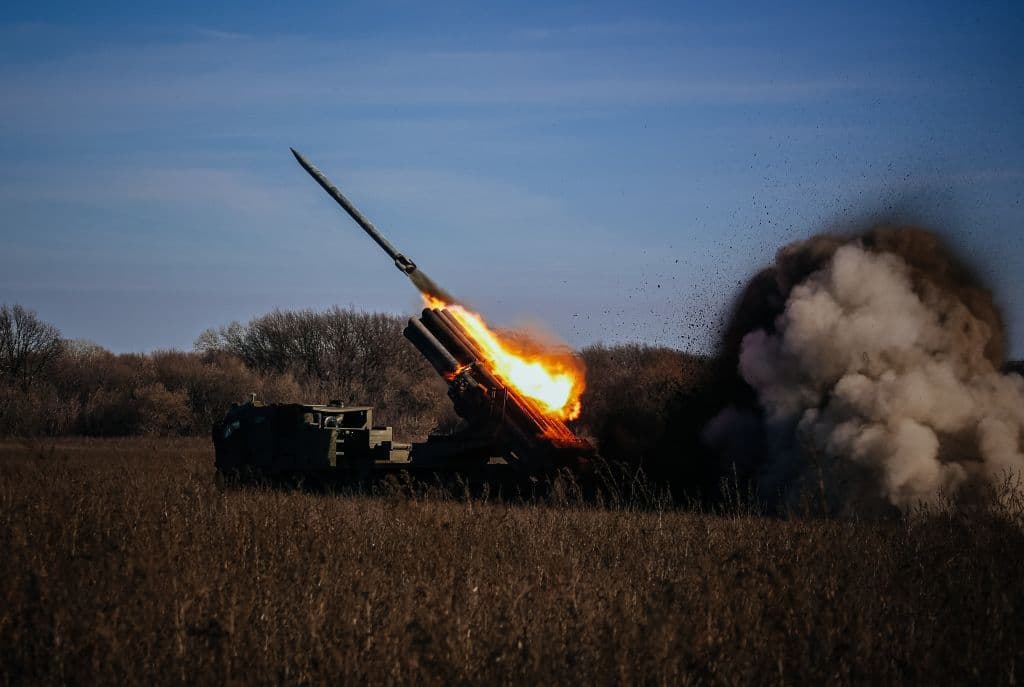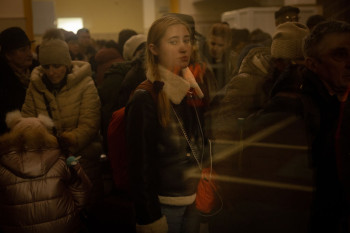Ukraine war latest: Ukraine pleads for more air defense systems as it braces for new Russian attacks on energy infrastructure

Key developments on Nov. 29:
- Kuleba: Negotiations for Kyiv-involved weapon production in NATO territory underway
- IAEA to strengthen its presence in all of Ukraine’s nuclear power plantsLiberated
- Kherson again comes under Russian fire
- Heaviest fighting raging in Bakhmut and Avdiivka areas, Donetsk Oblast
Ukraine’s Foreign Minister Dmytro Kuleba said negotiations are ongoing on Kyiv-involved weapon and ammunition production in NATO territory as heavy fighting rages on. He didn’t elaborate on the negotiation process.
Kuleba called upon Western allies to ramp up their weapons manufacturing capacity to further help Ukraine.
“There is no alternative to this decision,” he said at a briefing in Bucharest during his NATO summit meeting.
Earlier on Nov. 28, Kuleba told Politico that there were countries “who have what Ukraine needs but who are not going to sell it in sufficient quantities for political reasons.” He specified that Ukraine needs air defense, tanks, and production lines.
While more Western arms deliveries have taken place recently, including the arrival of NASAMS and Aspide air defense systems, Ukraine needs significantly more.
If NATO countries don’t boost their production, “we won’t be able to win – as simple as that,” Kuleba said, as quoted by Politico.
Kuleba said the main topics of the two-day meeting of NATO foreign ministers in Bucharest that began on Nov. 29 would be the supply of air defense systems to Ukraine, as well as the restoration of damaged energy infrastructure.
“The time for talking has passed,” Kuleba said at the same briefing.
Kuleba named the U.S. Patriot air defense system among the equipment Ukraine critically needs. Pentagon said later in the day that it has “no plans to provide Patriot batteries to Ukraine” right now.
Emergency power outages
On the first day of the summit in Bucharest, NATO Secretary General Jens Stoltenberg pledged that the allies will provide Ukraine with more weapons and help restore energy sites damaged by Russian attacks.
Addressing the Russian missile campaign against Ukraine’s energy system, Stoltenberg accused Moscow of "trying to use winter as a weapon of war.”
In a NATO foreign ministers statement released later, the alliance said it will assist Ukraine in restoring its energy infrastructure and protecting civilians from Russian missile attacks.
The growing Western support comes as Ukrainian officials, including President Volodymyr Zelensky, warn that Russia appears to be preparing another mass attack across the country this week.
Kyiv and other cities are still grappling with scheduled and emergency power outages following the latest mass attack on Nov. 23. The streets are almost pitch dark in the evening as Ukraine strives to save electricity amid a power deficit.
To help Ukraine through power outages, the U.S. will provide Ukraine with $53 million, State Secretary Antony Blinken said.
Meanwhile, the International Atomic Energy Agency (IAEA) will strengthen its presence in all of Ukraine's nuclear power plants to help enhance their protection, the agency’s head Rafael Grossi said after a meeting with Foreign Minister Kuleba.
Grossi added that he was still working with Ukrainian officials toward the “urgent establishment” of a buffer zone around the Moscow-occupied Zaporizhzhia Nuclear Power Plant, the biggest nuclear plant in Europe.
Continued Kherson attacks
Three weeks after Ukrainian forces liberated the southern regional capital of Kherson, Russia is carrying out an intense bombardment campaign against civilians in the city.
On Nov. 29, Russian forces launched an attack near the regional hospital and the building’s windows shattered, Deputy Head of the President's Office Kyrylo Tymoshenko said. No casualties were reported.
But even as hundreds of civilians flee Kherson amid intensifying shelling, Ukraine is racing to fix damaged utilities before the weather gets colder.
Kherson Oblast Governor Yaroslav Yanushevych said that as of Nov. 29, power supply for about 41% of household consumers in the liberated city had been restored. Before that, Kherson was left without electricity, heating, and water for weeks.
In the country’s east, three Russian S-300 missile systems hit residential districts in the city of Sloviansk, Donetsk Oblast, according to Mayor Vadym Liakh. He added that the damage is being assessed but there were no casualties.
Russian forces are still conducting their main offensive operations in the Bakhmut and Avdiivka areas in Donetsk Oblast, massing fire upon settlements, Ukraine’s General Staff reported.
The General Staff report also said that Ukraine launched nine strikes near the Russian military’s warehouse, equipment, and anti-aircraft missile system on Nov. 29.










